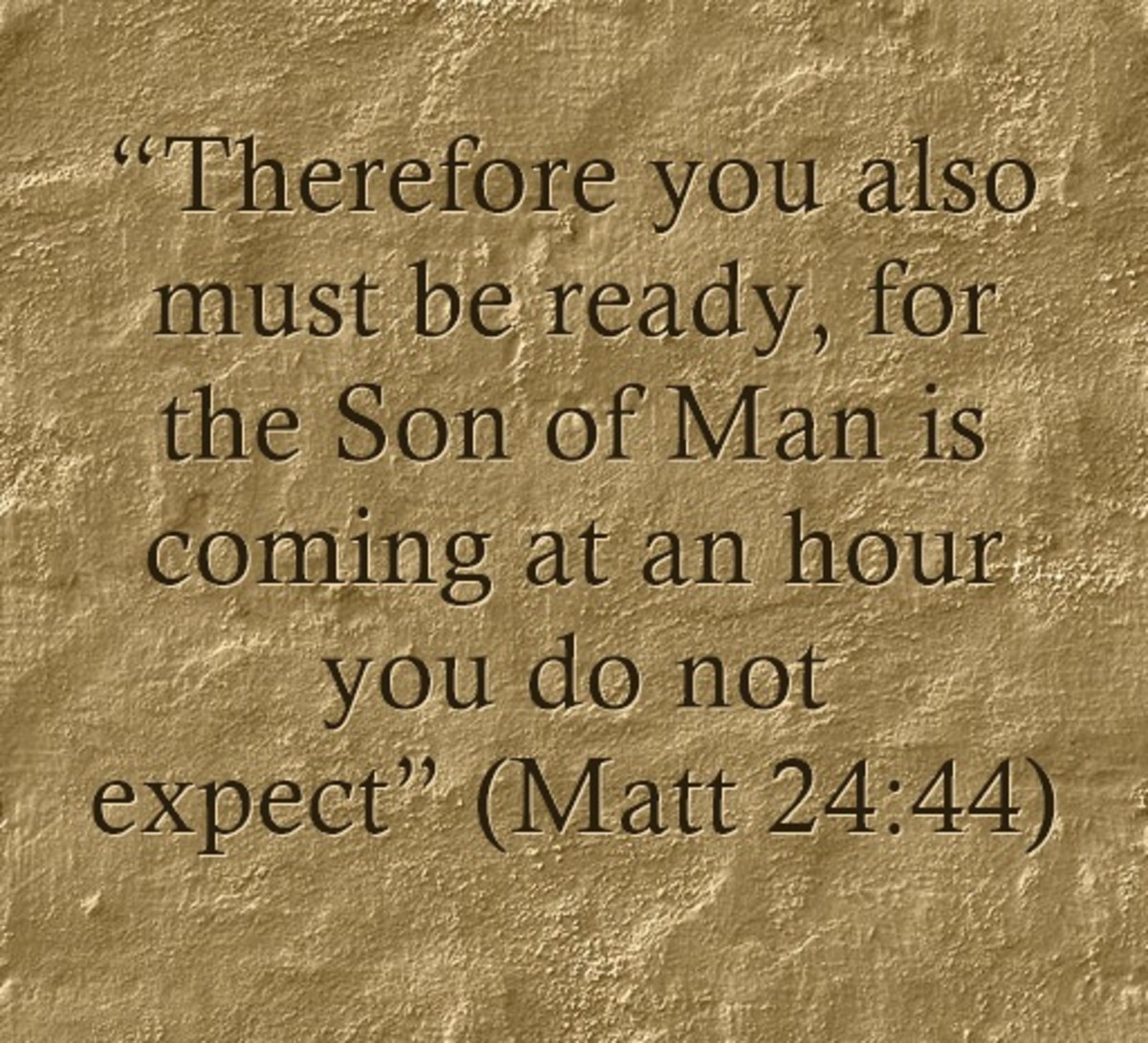Paul: Was He False?

Welcome. Today, we will discuss the many accusations against the apostle Paul. Many Christians, atheists, and more have come against him, saying he was a false prophet, misogynistic, and more. Are these true according to the scriptures? Let's find out.
- Unlearned and Unstable Wrest (2 Peter 3:14-17)
- Paul the Hypocrite? (Matthew 23 13 and Acts 23 6)
- Contradicting Conversion Stories (Acts 9 and 22).
- Did Jesus Foretell Paul's False Claim of Seeing Him in the Desert? (Matthew 24 26 and Acts 9)
- Did Paul Say We Could Sin? (Romans 7 19)
- Did Paul Forbid Marriage and Contradict Himself? (1 Corinthians 7:28 and Hebrews 13 4).
- Paul Quoted Pagans (Acts 17 28, 1 Corinthians 15 33, and Titus 1 12)
- Did Paul Lie? (Romans 3 7 and 2 Corinthians 12 16).
- Did Paul Condone Eating Food Sacrificed to Idols? (1 Corinthians 10 25 and Daniel 1 8).
- Was Paul Misogynistic? And Did He Say Men Must Never Cover Their Head? (2 Corinthians 14 34 and 2 Timothy 2 11)
- Did Paul Claim to be Christ? Or Better Than Christ? (Galatians 1 16, 2 20, and Galatians 4 14).
Unlearned and Unstable Wrest
What should we watch out for when reading Paul's letters?
15 And account that the longsuffering of our Lord is salvation; even as our beloved brother Paul also according to the wisdom given unto him hath written unto you;
16 As also in all his epistles, speaking in them of these things; in which are some things hard to be understood, which they that are unlearned and unstable wrest, as they do also the other scriptures, unto their own destruction.
17 Ye therefore, beloved, seeing ye know these things before, beware lest ye also,...
...being led away with the error of the wicked, fall from your own stedfastness.
— 2 Peter 3:14-17What does this mean? It means that those without the understanding of the scriptures will not truly understand Paul. I have heard some people accuse him by saying that he comes with a mystery, yet the Messiah did not. In the verses where he uses the word mystery, mustérion , it actually translates to "secret". It did not mean what we say it means today. Paul is revealing something unknown to his readers. Not something that he himself has come up with, but something that they did not understand about the scriptures.
This principle of being learned in the scripture before going to another one can be applied to all of the scriptures, not just Paul's writings. With that being said, let's get into the accusations.
Paul the Hypocrite? (Matthew 23 13 and Acts 23 6)
Jesus says, " But woe unto you, scribes and Pharisees, hypocrites! for ye shut up the kingdom of heaven against men: for ye neither go in yourselves, neither suffer ye them that are entering to go in." What was Paul? A Pharisee, and "the son of a Pharisee" out of his own mouth. But we have to take into account one thing; Paul believed in Christ. He did not at one time in his life, but later on, he did. The Pharisees that Jesus is addressing here do not believe in him. If this evidence against him were true, how could we trust that Nicodemus was righteous? He talked with Christ to learn from him, (John 3:1–21), he defends Jesus by reminding the Sanhedrin that the law requires that a person is heard before being judged (John 7:50–51), and he helped bury Christ. (John 19:39–42). Why should we trust Nicodemus and not Paul if we are going to bring up his past as a Pharisee? Was Moses not thought to be an Egyptian? Who knows what kind of stuff he might have done while living as one. Should we now discredit Moses? Absolutely not.
Contradicting Conversion Stories (Acts 9 and 22)
This claim says that the contradicting conversion stories in Acts invalidate Paul. But I do not believe that they are contradictory. In Acts 9 7 reports we that the men did not see anybody when Paul had the vision, but Acts 22 9 says they saw a light. Notice how it says they saw a light, not a person. This is not a contradiction. These men saw a light but saw no form or person in it.
Acts 9 reports that the men heard a voice, but Acts 22 appears to be saying that they did not hear the voice but this is not so. In Acts 22, the stress is on the voice. This means that the men heard a sound (Acts 9), but that it was not intelligible to them (Acts 22).
Did Jesus Foretell Paul's False Claim of Seeing Him in the Desert? Matthew 24 26

In Acts 9, Paul claims to see the Messiah on the road to Damascus, which is in the desert. Because of this, some have claimed that Christ was actually prophesying that Paul would do this and that we should not believe him. But what is the context of Christ's words?
First, notice how he also mentioned that some might say he is in the secret chambers. Paul did not claim this. '
22 And except those days should be shortened, there should no flesh be saved: but for the elect's sake those days shall be shortened.
23 Then if any man shall say unto you, Lo, here is Christ, or there; believe it not.
24 For there shall arise false Christs, and false prophets, and shall shew great signs and wonders; insomuch that, if it were possible, they shall deceive the very elect.
25 Behold, I have told you before.
26 Wherefore if they shall say unto you, Behold, he is in the desert; go not forth: behold, he is in the secret chambers; believe it not.
27 For as the lightning cometh out of the east, and shineth even unto the west; so shall also the coming of the Son of man be.
28 For wheresoever the carcase is, there will the eagles be gathered together.
Christ in no way is prophesying that Paul, a false prophet, would arise and make the claim to see him. He is simply warning people to be wary of those who claim to see the Messiah. It is possible that they are not even claiming to see Jesus. Remember, many Jews rejected him. If they claimed to see the Messiah, they would probably be making up their own.
Did Paul Say We Could Sin? (Romans 7 19)

This verse by itself seems to imply that Paul while being in the truth, confesses to still doing evil things. Is he advocating this?
14 For we know that the law is spiritual: but I am carnal, sold under sin.
15 For that which I do I allow not: for what I would, that do I not; but what I hate, that do I.
16 If then I do that which I would not, I consent unto the law that it is good.
17 Now then it is no more I that do it, but sin that dwelleth in me.
18 For I know that in me (that is, in my flesh,) dwelleth no good thing: for to will is present with me; but how to perform that which is good I find not.
20 Now if I do that I would not, it is no more I that do it, but sin that dwelleth in me.
21 I find then a law, that, when I would do good, evil is present with me.
22 For I delight in the law of God after the inward man:
23 But I see another law in my members, warring against the law of my mind, and bringing me into captivity to the law of sin which is in my members.
Paul is saying that the law is spiritual and good, but he, made of carnal flesh, is not. He, like everyone else who believes, is still prone to sin. It is a war within the mind of the believer to do what is right or wrong. The answer is to trust in the Messiah, which would produce righteous works.
21 I find then a law, that, when I would do good, evil is present with me.
22 For I delight in the law of God after the inward man:
23 But I see another law in my members, warring against the law of my mind, and bringing me into captivity to the law of sin which is in my members.
24 O wretched man that I am! who shall deliver me from the body of this death?
25 I thank God through Jesus Christ our Lord. So then with the mind I myself serve the law of God; but with the flesh the law of sin.
Did Paul Forbid Marriage and Contradict Himself? (1 Corinthians 7:28 and Hebrews 13 4).

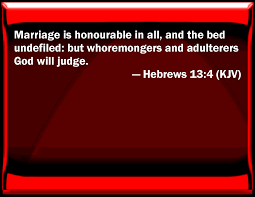
According to some, Paul is saying we should not get married but later on he says we should. What are these verses really saying? Read it carefully. In Corinthians, he says that these people have not sinned. They have done nothing wrong. But they will face troubles in life. In Hebrews, he is saying that marriage should be honored. He is not contradicting himself. All he is saying is that the marriage bed should be honored, and while it is not a sin to be married, you should be careful because married couples tend to go through a lot. Cross reference this with 1 Corinthians 7 1-2 where he advocates both celibacy and having a spouse. Both can be good, but we must be careful when deciding which one we are to do.
Paul Quoted Pagans (Acts 17 28, 1 Corinthians 15 33, and Titus 1 12)
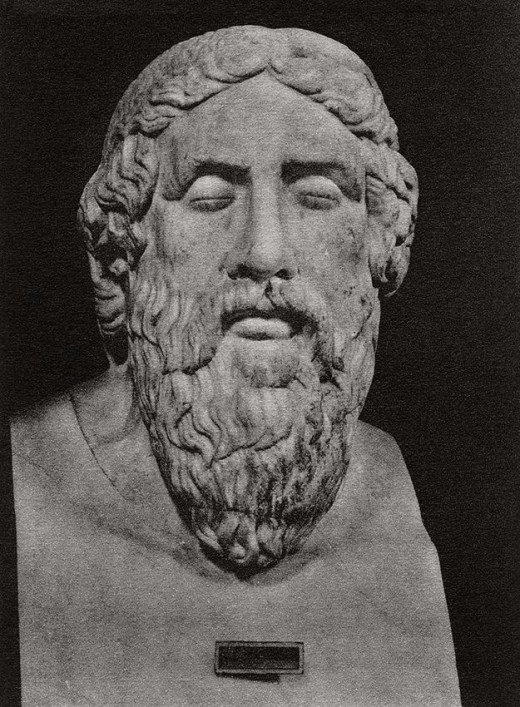
Paul quoted philosophers that were prevalent during the New Testament time period. Because these men were pagans, it is seen as evidence against Paul. But let's take a look at some of these quotes. If Paul quoted pagans and believed in what they say, how can he be right? Did he say they were righteous? Or is he using their words against them to reach a culture that is well learned in their words? We must take into context one thing; Paul was a Roman citizen. Acts 22 27. And so were the people he wrote too. They would know what the Romans think, the same way when the tribes were in Egypt they would have gotten to know what Egyptian culture and thought was like.
For in him we live, and move, and have our being; as certain also of your own poets have said, For we are also his offspring.
— Acts 17 28He is joining two different quotes here.
But thou diest not, for to eternity thou livest and standest,
For in thee we live and move and have our being.
— Minos and Rhadamanthus by Epimenides’For we are also his offspring; and he in his kindness unto men giveth favourable signs and wakeneth the people to work, reminding them of livelihood.
— Phaenomena by AratusThese quotes, while obviously not being in reference to the one true God, are now being used to refer to him. In a way, Paul uses these words against them.
Be not deceived: evil communications corrupt good manners.
— 1 Corinthians 15 33Bad company corrupts good character.
— MenanderThough Menander was a heathen, what he said does not contradict the Bible. Throughout the Bible, especially in the book of Proverbs, we are told that those we surround ourselves can be a bad influence on us. Proverbs 12 26 and 13 20.
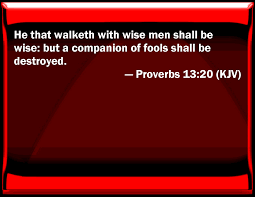
The last man he quoted was Epimenides of Gnossus.
One of themselves, even a prophet of their own, said, The Cretians are always liars, evil beasts, slow bellies.
— Titus 1 12Is Paul saying all Cretans are liars? In the two previous verses, it talks about how there are deceivers there. Paul is referencing Epimenides words on how all Cretans are liars, though ironically he himself was a Cretan. Against the Cretans who taught that Zeus was not immortal, he taught that he was.
They fashioned a tomb for thee, O holy and high one
The Cretans, always liars, evil beasts, idle bellies!
But thou art not dead: thou livest and abidest forever,
For in thee we live and move and have our being.
Cretans themselves were stereotyped as being liars, not just by Epimenides. "The very word “to Cretize” (kretizein), or to play the part of a Cretan, was invented as a word synonymous with “to deceive,” “to utter a lie;” just as corinthiazein. “to play the part of a Corinthian,” signified to commit a still darker moral offence." (Ellicott's Commentary for English Readers).
We cannot condemn Paul for quoting pagans because he uses their own words to condemn their gods. Furthermore, we cannot do this when we can find an example in the Old Testament where a prophet does the same. In Isaiah 14, The reason why the King of Babylon is described as "the morning star" is because the Babylonians believed that their king was the child of their gods Bel and Ishtar, both of whom were associated with the planets- they thought that their King was the planet, Venus.
The passage about "Lucifer" is referencing a Babylonian myth. Heylel, the morning star (Venus), tried to climb the walls of the northern city of the gods to make himself king of heaven, only to be driven from the sky by the rising sun. In Isaiah 14:12-20, this myth is given a historical application. Isaiah is mocking the myth, and saying that the King of Babylon was acting like Heylel in the myth- but would be thrown down not by another planet, but by the Almighty himself. (What You Should Know About the Devil)
Paul did not quote these men because he believed they were righteous. But what they said was not too far from the truth. If a Buddhist says murder is wrong, are we gonna say he is wrong? No.
Did Paul Lie? Romans 3 7 and 2 Corinthians 12 16.

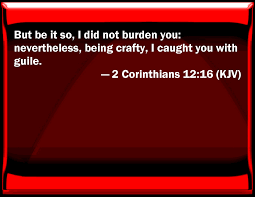
These scriptures are used to say that Paul has admitted to lying about the Gospel, or more specifically his conversion on the road to Damascus.
For if the truth of God hath more abounded through my lie unto his glory; why yet am I also judged as a sinner?
— Romans 3 7But be it so, I did not burden you: nevertheless, being crafty, I caught you with guile.
— 2 Corinthians 12 16Let's read the context of these passages, first starting with Romans 3.
1 What advantage then hath the Jew? or what profit is there of circumcision?
2 Much every way: chiefly, because that unto them were committed the oracles of God.
3 For what if some did not believe? shall their unbelief make the faith of God without effect?
4 God forbid: yea, let God be true, but every man a liar; as it is written, That thou mightest be justified in thy sayings, and mightest overcome when thou art judged.
But if our unrighteousness commend the righteousness of God, what shall we say? Is God unrighteous who taketh vengeance? (I speak as a man)
6 God forbid: for then how shall God judge the world?
Paul is not admitting to lying. Here he is asking a question and answering it to help those in Rome to understand the scripture. If our sin helps others to see how righteous the Most High is by comparison, why are we judged? But the Most High is fair, so he is qualified to judge them as a sinner. Just because our sins shows that he is good by comparison does not mean that we should continue sinning. Obeying him would in no way take the glory away from him.
8 And not rather, (as we be slanderously reported, and as some affirm that we say,) Let us do evil, that good may come? whose damnation is just.
Now let's take a look at 2 Corinthians 12 16 in context.
11 I am become a fool in glorying; ye have compelled me: for I ought to have been commended of you: for in nothing am I behind the very chiefest apostles, though I be nothing.
12 Truly the signs of an apostle were wrought among you in all patience, in signs, and wonders, and mighty deeds.
13 For what is it wherein ye were inferior to other churches, except it be that I myself was not burdensome to you? forgive me this wrong.
Paul is saying, "I'm not below the others, but I am humble. I have done no wrong against you, yet you make me look like I am false." He says he is not burdening them, but then later on in the same letter, he admits to lying? That would make no sense. He is referring to the ones who accuse him of burdening them. We can confirm this by reading the next three verses.
17 Did I make a gain of you by any of them whom I sent unto you?
18 I desired Titus, and with him I sent a brother. Did Titus make a gain of you? walked we not in the same spirit? walked we not in the same steps?
19 Again, think ye that we excuse ourselves unto you? we speak before God in Christ: but we do all things, dearly beloved, for your edifying.
There were believers in the church that accused Paul of burdening them. Paul was simply refuting them.
Did Paul Condone Eating Food Sacrificed to Idols? 1 Corinthians 10 25.

According to the accusers, Paul is contradicting the law that says we cannot eat anything dedicated to a false god. In the Old Testament, Israel was given many laws to avoid paganism, but there is no law that talks about a believer eating food dedicated to a false deity. Why? Because all of the believers were in Israel and the only reason they would be doing so if they were taken captive in another land or if they were practicing idolatry. Eating food dedicated to Baal or Dagon would not be something for them to worry about.
"If any of them that believe not bid you to a feast, and ye be disposed to go; whatsoever is set before you, eat, asking no question for conscience sake." But if you go to verse 28 you will see that if anyone tells you that this food was offered to some false god, abstain from it if it is for your conscience's sake. So these verses are not about eating whatever you want. Here is what it is about; any clean food that is offered to you, don't worry about it and just eat it with no problem. Even if it was offered to a false idol, you are eating it without reverence to that idol.
The Corinthians here would have been surrounded by pagan culture, so it might be a stumbling block for someone to eat this food, especially if they are weak in their faith. The best course of action would be to not eat this around such a person and to not eat it yourself if you were such a person.
They also use Daniel as an example. He did not eat the king's food. Why? Because it must have been offered to idols. But that is not why he refused to eat.
8 But Daniel purposed in his heart that he would not defile himself with the portion of the king's meat, nor with the wine which he drank: therefore he requested of the prince of the eunuchs that he might not defile himself.
12 Prove thy servants, I beseech thee, ten days; and let them give us pulse to eat, and water to drink.
— Daniel 1 8 and 12This can be taken two different ways.
- The meat was unclean.
- Although eating the food would not be a sin, even if clean, it would be a stumbling block for others.
Was Paul Misogynistic? And Did He Say Men Must Never Cover Their Head? 2 Corinthians 14 34 and 2 Timothy 2 11
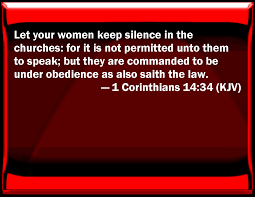

At first glance, Paul is telling the women, "Do not speak. Just listen to the men, You do not have the ability to teach the gospel to others."
In 1 Corinthians 11 14 it says it is against nature for men to have long hair and women short hair. I do not think he meant nature as in animals. The word has multiple meanings, including in the Greek;
1.
the phenomena of the physical world collectively, including plants, animals, the landscape, and other features and products of the earth, as opposed to humans or human creations.
2.
the basic or inherent features of something, especially when seen as characteristic of it.
The word used here was phusis, which is translated as nature, inherent nature, origin, birth. For example, you may say that human nature was corrupted when man fell.
There have always been differences between the sexes, so it seems Paul is saying that men usually have their hair short and women have it long. The only time to my knowledge that long hair and men is mentioned in the Torah was when a man took the Nazarite vow. It seems more of a way of not unnecessarily offending someone in the faith or who would come to the faith rather than being an objective law in and of itself.
If misogyny is the case, why do we see women being praised for their role in the New Testament churches, the ones Paul wrote to? Phoebe in Romans 16 1 is the first one to be given any respect in this chapter, Priscilla is commended for risking her life in verse 3, Mary is commended for her hard work in verse 6, and more women in this chapter alone. And Galatians 3 28 says that the men and women are made one in the Messiah, and the chapter itself talks about how because every part of the body has its role, so does every believer have their role. We also know that women were prominent in the Old Testament, something Paul would be very familiar with as a Pharisee. Deborah (Judges Chapter 4 to 5) was a prophetess who was given credit for leading the battle against the Canaanites after Barak refused to leave without her. She was certainly allowed to speak and say what the law says.
In speaking of the law, what law was Paul referencing when he said, " they are commanded to be under obedience as also said the law"? When Eve tempted Adam, she was made subject to him as a punishment. This law was carried over into the Old Covenant and was also made to be carried into the New Covenant. Women are spiritually equal, but physically the man is the head. This has always been the case, so for a Christian to say that Paul is being misogynistic by saying this, they say that everyone else was too.
What does it mean that the women must be silent and learn? We know that the church order is based on the order of the household, 1 Corinthians 11:3-16.
- God
- Christ
- Husband
- Wife
The women here showed their devotion to this order by covering their heads. We also know that women were prophetesses. Should we conclude that if a woman were to receive a prophecy in the church that she should be silent? Should we also conclude that any woman with the gospel may not give it out? 1 Corinthians 11 5, which tells us women prayed and prophesied in church, concludes that this erroneous conclusion is not found in scripture.
This rule must be restrained to ordinary prophesyings; for certainly, if the Spirit of prophecy came upon a woman in the church, she might speak. Anna, who was a prophetess, in the temple gave thanks to the Lord, and spake of him to all them that looked for redemption in Jerusalem, Luke 2:38: and I cannot tell how Philip’s daughters prophesied, if they did not speak in the presence of many, Acts 21:9. The reason that is given why women should keep silence, is, because...
— Matthew Poole's Commentarythey are commanded to be under obedience. This apostle speaketh much the same thing, 1 Timothy 2:11,12, because it looked like a usurping authority over the man; which indeed is true, if it had been the ordinary practice of women to speak in the assemblies of the church; but not so, if some particular women sometimes spake upon an extraordinary impulse or impression. The law to which the apostle here refers, is thought to be that, Genesis 3:16, where the woman is commanded to be subject...
to her husband, and it is said, that he should rule over her; yet that law did neither restrain Miriam from prophesying, Exodus 15:20, nor yet Huldah, to whom Josiah himself sent, 2 Chronicles 34:22, of whom it is also said, that she dwelt in the college. But setting aside that extraordinary case of a special afflatus, it was, doubtless, unlawful for a woman to speak in the church.
The women were not given an authoritative manner in the church itself, but this does not mean they were totally prohibited from ever teaching the word. This also does not mean that the man is given authority to do whatever he pleases to his wife. Remember, the man is subject to Christ, who is subject to God. Whatever the man does cannot go against God, or else what he does is invalidated. And nowhere in the Old or New Testament do we see a positive example of a husband abusing his wife.
And for those of you who take this as a universal commandment for men to never cover their head and women to always cover their head when praying or prophesying, read Ezekiel 44 18. In regards to the priests, "They shall have linen bonnets upon their heads, and shall have linen breeches upon their loins; they shall not gird themselves with any thing that causeth sweat."
To learn more about supposed misogyny in the Bible, see Evil Doctrines Debunked.. I am writing an article on the role of the man in the household, showing what he can and cannot do.
Did Paul Claim to be Christ? Or Better Than Christ? (Galatians 1 16, 2 20, and Galatians 4 14).
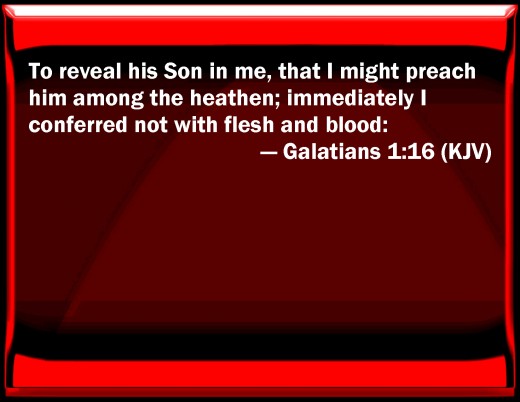
Some have accused Paul of saying he is better than Jesus, or that through some sort of divine incarnation he is or became Jesus. This verse is thought to be saying that he claims to be the Son. But if we read the previous verse we see that he is saying that the Son is in him, not that he is the Son.
I am crucified with Christ: nevertheless I live; yet not I, but Christ lives in me: and the life which I now live in the flesh I live by the faith of the Son of God, who loved me, and gave himself for me.
— Galatians 2 20Is Paul saying he literally died and now Christ is the one we are speaking too? In the previous verse, Paul had said that he was dead.
For I through the law am dead to the law, that I might live to God.
Dead to the law. The law demands that we die because at some point in our life we have broken that law. When we receive Christ, we become "dead to the law" because we are "crucified/impaled with Messiah."
He didn't die for us so that our sins could be blotted out and we could return to our old ways. In him we can find redemption and salvation from the penalty. And Christ himself says we must be born again.
1 There was a man of the Pharisees, named Nicodemus, a ruler of the Jews:
2 The same came to Jesus by night, and said unto him, Rabbi, we know that thou art a teacher come from God: for no man can do these miracles that thou doest, except God be with him.
3 Jesus answered and said unto him, Verily, verily, I say unto thee, Except a man be born again, he cannot see the kingdom of God.
— John 3 1-3What is being said here is that those who are faithful died with him, for they are born again. Not an actual death, but the one we used to be has died. Romans 6 6.

And finally, in Galatians 4 14, is Paul trying to elevate himself to the position of Christ by comparing how these people treated him to how they would treat Christ? If we compare this to Matthew 10 40 we can see that this is false.
Anyone who receives you receives me, and anyone who receives me receives the Father who sent me.
He was letting them know that they had treated him well.
But received me as an angel of God, even as Christ Jesus; nay, (saith he), you were so for from rejecting or despising me upon that account, that (on the contrary) you received me as if I had been an angel; yea, if Jesus Christ himself had come amongst you, you could not have been more kind to him than you were to me. This he tells them, partly, to let them know, that what he had spoken was not out of any ill will or prejudice to them; partly, to retain their good will,....
that they might not show themselves uncertain and inconstant in their judgments and affections; and partly, (as the following verse testifieth), to show the levity of some of them, who had too much forgotten their first judgment of him, and value for him.
— Matthew Poole's CommentaryI will be adding more to this article, but for now, I will leave it published to go ahead and answer a few of the accusations made against Paul and to answer any more if someone comments and leaves one. Peace and blessings and all praises to the Most High.







